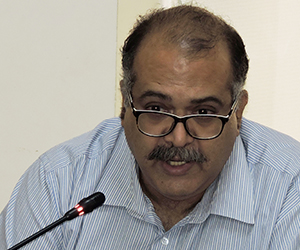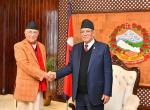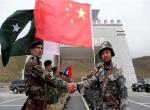One of the most troubling, but also fundamental, questions confronting India is while New Delhi is keen on cultivating with China a mutually beneficial and cooperative relationship that, despite an element of competition, is not only conflict-free but also cordial, does China want a similar relationship with India? Despite trade between the two Asian giants booming, and a fair degree of convergence in interests in global forums, there are outstanding issues – among others, the boundary question – between them that cause strains in the bilateral relationship. Some actions by the Chinese – stapled visas for people and officials from the Indian state of Jammu and Kashmir, the ‘aggressive’ and ‘intrusive’ patrolling along the disputed stretches of the Line of Actual Control, the complete disregard for India’s concerns and sensitivities when it comes to relations with Pakistan – muddy the waters by fouling up the public mood in India.
Even as the two sides work to manage, if not resolve, these issues, Afghanistan has emerged as something of a test case on not just how India and China will relate to each other but also on whether they will either work in conjunction or at cross-purposes on other emerging issues like the West Asian crisis. With the Western involvement, and perhaps even interest, in Afghanistan almost over, countries of the region will have to do some of the heavy-lifting to ensure that Afghanistan doesn’t once again become the cockpit of terrorism which will also affect them. Among all of Afghanistan’s neighbours, India and China are probably the only two countries with the diplomatic, political, economic and military clout to help in stabilising Afghanistan. They can synergise their strengths to prevent Afghanistan’s descent into chaos.
The Russians, still suffering from the hangover of their Afghan misadventure in the 1980s, are very wary of getting involved in Afghanistan directly. The Iranians have a crucial role to play but can’t do much alone partly because of their strained relations with the West and partly because of their deepening involvement in West Asia to combat the scourge of the Islamic State. The Pakistanis are more of a problem and, notwithstanding the horrible massacre of school children in Peshawar, are unlikely to become part of the solution unless someone like China is able to knock better sense into them. The Central Asian states have their own problems and can at best play a supporting role.
The problem as far as Afghanistan is concerned is that even though the interests of both India and China converge, their strategies diverge. Both countries are extremely apprehensive of Afghanistan getting destabilised and once again becoming a base for global and regional jihadist terror groups. The Uighur terrorists and separatists in Xinjinag, India-centric jihadists, Central Asian extremists, all will once again make a bee-line for Afghanistan and make it a safe haven for plotting and launching terrorist attacks. A civil war in Afghanistan between the resurgent Taliban and the forces opposed to them will also spill over into other countries. This, in turn, will force countries affected by the war in Afghanistan to cultivate proxies, which will only further fuel the war within and without Afghanistan. But keeping Afghanistan secure from extremists and jihadists is just one of the common interests shared by India and China.
For Afghanistan to remain safe it must become economically viable and vibrant. While for the foreseeable future, foreign aid and assistance will be necessary to keep Afghanistan afloat, it cannot remain a donor driven economy endlessly. There are two potential areas that can propel Afghanistan towards economic viability. The first is Afghanistan leveraging its location to become a bridge between South Asia on one side and Central and West Asia on the other. China really doesn’t need Afghanistan as a bridge to reach Central Asia, but India does. More importantly, Afghanistan becoming a transit hub between Central and South Asia makes sense only if these routes extend into India. Without India, Afghanistan’s utility for transit is neither attractive nor viable. The second is extracting the mineral resources of Afghanistan and using them to set up industry in Afghanistan and exporting some of the raw material to other countries. Here both India and China have a role to play, not just in making investments in developing infrastructure – roads, railways, pipelines –but also setting up industries in Afghanistan. Peace, security and stability is however a sine qua non for Afghanistan being able to exploit its location and its mineral wealth to become a self-sustaining economy.
The biggest spoiler in Afghanistan is also the country that is likely to be most despoiled by a destabilised or Talibanised Afghanistan is Pakistan. It is also the major point of divergence in how India and China seek to stabilise Afghanistan. For now, China appears set to ride on Pakistan's shoulder to play a role in Afghanistan. While Pakistan undoubtedly is critical to solving the Afghan conundrum, it has also remained the biggest obstacle in efforts to stabilise Afghanistan. The Chinese however, have placed faith in Pakistan and have been taking their cues from Pakistan while forging their policy in Afghanistan. Given the influence that China exercises on Pakistan – the much delayed and much-hyped Operation Zarb-e-Azb in North Waziristan was in no small measure the result of Chinese pressure – the Chinese are ideally placed to force compellence on Pakistan to change its destructive policy on Afghanistan, both in terms of the support and sanctuary being given to Taliban and their affiliates as well as its denial of transit rights to India.
But as long as China sees Afghanistan through the prism of Pakistan and refuses to exert its influence to make Pakistan do the right thing, the prospects of India and China working together on Afghanistan will remain very bleak. Worse, the entire grandiose plan to make an economic corridor through Pakistan with one section branching out into Afghanistan is going to become a victim to the instability that will spill over into Pakistan from Afghanistan. What the Chinese are not getting is that Pakistan's current policy of getting the Taliban a stake in power in Afghanistan is going to push Afghanistan into the throes of extremism and jihadism which, beyond a point, even Pakistan won’t be able to control. The difference between the approach of India and Pakistan is that while India seeks to develop its influence in Afghanistan by helping to stabilise that country, Pakistan exercises its influence by destabilising Afghanistan. As such, with or without China, India will need to remain engaged with Afghanistan because its vital security interests are involved in a stable, non-talibanised Afghanistan.
Of course, if the Pakistan part of the problem is sorted out – either by China pulling its weight to make Pakistan fall in line or, in the extreme case, China bypassing Pakistan completely – India and China can work together through Central Asia or through Iran to help Afghanistan. India can also share its development template in Afghanistan with China to rebuild that country. Both the countries have the technical and institutional strengths for build Afghan capacity to handle their affairs. Most of all, India has a much deeper cultural and social connect with the Afghan society than China and can assist the Chinese in this developing a better understanding of Afghanistan. The spin-offs of Sino-Indian cooperation in Afghanistan will also have positive impact on their bilateral relationship. But in the ultimate analysis everything will depend on what sort of a relationship China wants with India?
Published in Vivek: Issues & Options, November - December 2014
(Disclaimer: The views and opinions expressed in this article are those of the author and do not necessarily reflect the official policy or position of the Vivekananda International Foundation)










Post new comment